Many people look forward to Thanksgiving to gather with family or friends, feel grateful for life’s blessings, and share a hearty meal. For holiday hosts, Thanksgiving can also be hectic and stressful, and many pets share similar sentiments. This holiday has many potential pet dangers, which are often compounded for blind or vision-impaired pets who already have special needs. Our Envision More Veterinary Ophthalmology team shares tips for keeping vision-impaired pets safe during the fall holiday season.
#1: Ensure guests understand your pet is vision impaired
All your guests should know about your pet’s vision condition to ensure they act appropriately and avoid unknowingly startling them or putting them in harm’s way. If you have only a few guests, you can let them know your basic ground rules when they arrive. If you’re expecting a houseful and want to ensure every guest knows the rules, your pet can wear a vest, harness, or collar that clearly states “blind pet.” Whether your pet is completely blind or still retains some vision, this will ensure guests use caution around your furry pal.
#2: Keep vision-impaired pets away from exits
Entryways hold many dangers for blind or visually impaired pets—they can be stepped on or kicked by a guest, walk through an open doorway and fall down, or get outside, become lost, and be unable to find their way back. Avoid these issues by blocking the entry area with a pet gate, or by keeping your pet in a separate but familiar room. If you opt for a pet gate near the door, introduce the gate prior to Thanksgiving and walk your pet nearby, so they can learn the new barrier’s placement.
#3: Avoid intrusive decorations in a vision-impaired pet’s space
Do not put decorations in a blind or vision-impaired pet’s space. This could be a recipe for injury, because your pet will most likely bump into the new objects as they navigate the home and be hurt if the object is rough or sharp, or falls on them. Keep decor items flat against the walls or in home or outdoor areas your pet typically does not visit. When decorating, also remember that some plants, especially lilies, are dangerous to pets.
#4: Don’t let your vision-impaired pet’s heightened sense of smell lead them into danger
Your vision-impaired pet still has a working sense of smell that, in many cases, is their main navigational tool. On Thanksgiving, the delightful food smells coming from the kitchen can lure your pet into the food preparation area, where they may consume toxic or otherwise harmful ingredients. Chocolate, raisins, garlic, onions, and baked goods containing xylitol are toxic, and fatty foods, such as turkey skin or gravy, can lead to painful pancreatitis. For their safety, confine your pet to a different room or their crate while you prepare and eat the Thanksgiving meal.
#5: Provide a safe, quiet environment for anxious vision-impaired pets
Some vision-impaired pets, like sighted pets, become anxious in various situations. Strangers, crowds, and changes in their daily routine are common anxiety triggers and your pet may become stressed and lash out at guests, other pets, or family members. Rather than allowing your pet’s anxiety to escalate, anticipate the problem and ensure your pet has access to a safe, quiet space away from guests and noise on Thanksgiving day. Also, consider talking to your primary veterinarian before the holiday about anxiety-reducing supplements or medications.
#6: Prepare carefully for travel with vision-impaired pets
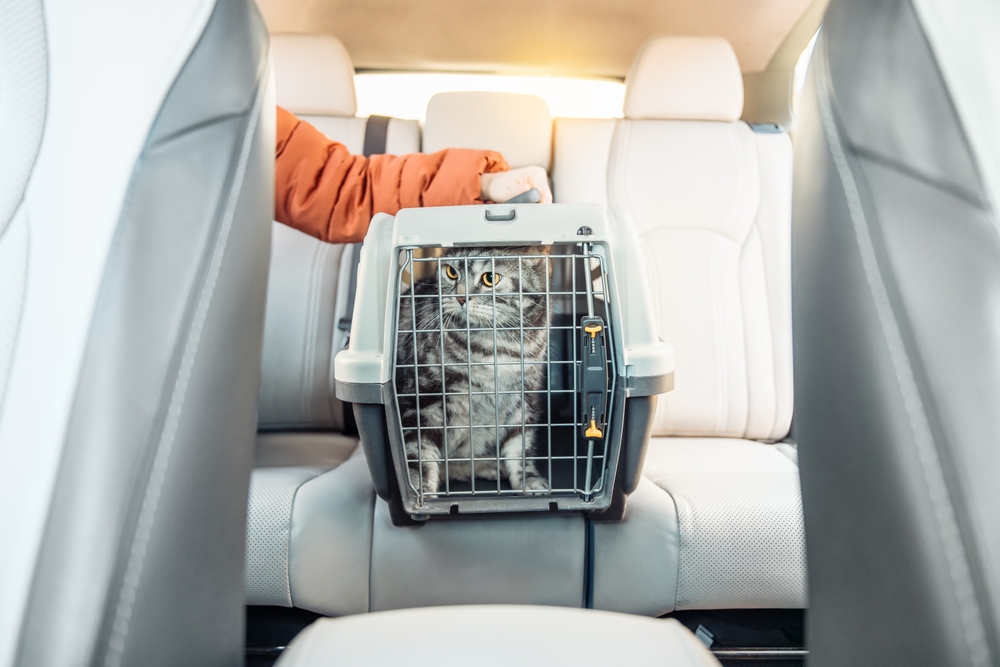
Traveling with any pet is stressful, but traveling with vision-impaired pets can be more difficult. Always secure your pet in the car so they cannot fall or injure themselves in transit. Ensure you bring enough eye medication to last your entire stay, and consider asking your primary veterinarian about preemptive motion sickness medications. When you arrive at your destination, carefully introduce your pet to their new space and guide them, so they do not injure themselves while they map out their temporary home.
A hectic household on Thanksgiving can be dangerous for all pets, but especially those who are vision impaired, so follow our blind-pet safety tips to ensure positive guest interactions and avoid a pet eye or other emergency this Thanksgiving. Contact the Envision More Veterinary Ophthalmology team to set up your pet’s next recheck visit or to evaluate new eye concerns before the stress of the holiday season strikes.

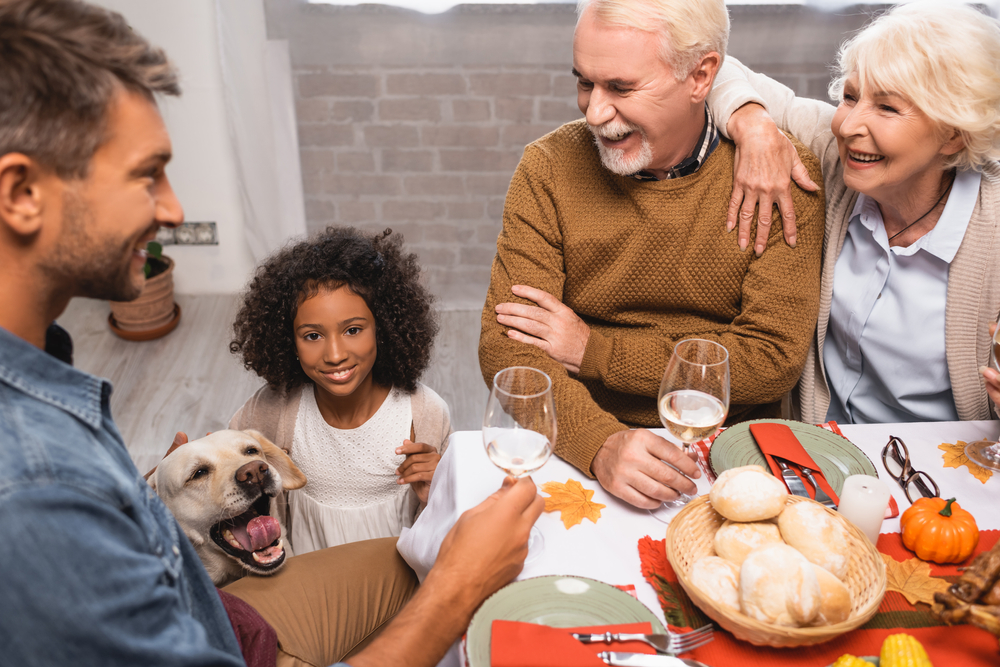
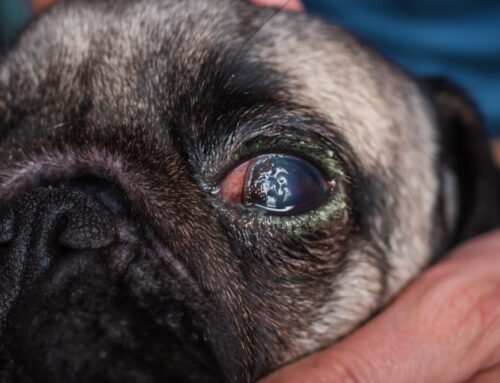
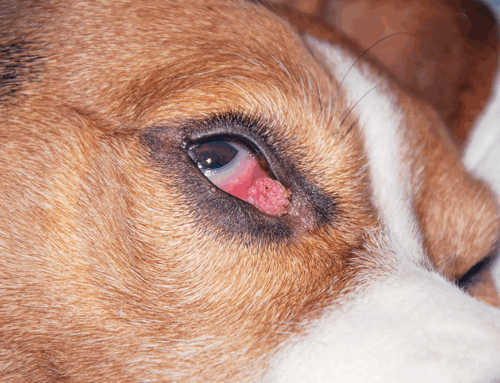
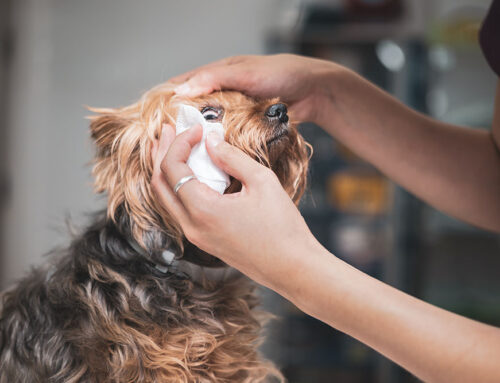
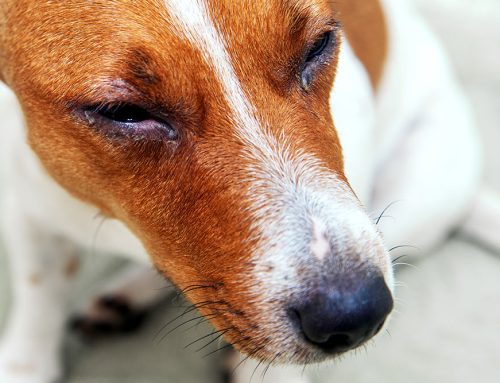

Leave A Comment